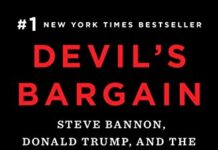
Ebook Info
- Published: 2016
- Number of pages: 272 pages
- Format: Epub
- File Size: 0.67 MB
- Authors: J. D. Vance
Description
Hillbilly Elegy is a passionate and personal analysis of a culture in crisis—that of white working-class Americans. The decline of this group, a demographic of our country that has been slowly disintegrating over forty years, has been reported on with growing frequency and alarm, but has never before been written about as searingly from the inside. J. D. Vance tells the true story of what a social, regional, and class decline feels like when you were born with it hung around your neck.
The Vance family story begins hopefully in postwar America. J. D.’s grandparents were “dirt poor and in love,” and moved north from Kentucky’s Appalachia region to Ohio in the hopes of escaping the dreadful poverty around them. They raised a middle-class family, and eventually their grandchild (the author) would graduate from Yale Law School, a conventional marker of their success in achieving generational upward mobility.
But as the family saga of Hillbilly Elegy plays out, we learn that this is only the short, superficial version. Vance’s grandparents, aunt, uncle, sister, and, most of all, his mother, struggled profoundly with the demands of their new middle-class life, and were never able to fully escape the legacy of abuse, alcoholism, poverty, and trauma so characteristic of their part of America. Vance piercingly shows how he himself still carries around the demons of their chaotic family history.
A deeply moving memoir with its share of humor and vividly colorful figures, Hillbilly Elegy is the story of how upward mobility really feels. And it is an urgent and troubling meditation on the loss of the American dream for a large segment of this country.
User’s Reviews
Review “[A] compassionate, discerning sociological analysis…Combining thoughtful inquiry with firsthand experience, Mr. Vance has inadvertently provided a civilized reference guide for an uncivilized election, and he’s done so in a vocabulary intelligible to both Democrats and Republicans. Imagine that.” — Jennifer Senior, New York Times“[Hillbilly Elegy] is a beautiful memoir but it is equally a work of cultural criticism about white working-class America….[Vance] offers a compelling explanation for why it’s so hard for someone who grew up the way he did to make it…a riveting book.” — Wall Street Journal“[Vance’s] description of the culture he grew up in is essential reading for this moment in history.” — David Brooks, New York Times“[Hillbilly Elegy] couldn’t have been better timed…a harrowing portrait of much that has gone wrong in America over the past two generations…an honest look at the dysfunction that afflicts too many working-class Americans.” — National Review”[A]n American classic, an extraordinary testimony to the brokenness of the white working class, but also its strengths. It’s one of the best books I’ve ever read… [T]he most important book of 2016. You cannot understand what’s happening now without first reading J.D. Vance.” — Rod Dreher,The American Conservative“J.D. Vance’s memoir, “Hillbilly Elegy”, offers a starkly honest look at what that shattering of faith feels like for a family who lived through it. You will not read a more important book about America this year.” — The Economist“[A] frank, unsentimental, harrowing memoir…a superb book…” — New York Post“The troubles of the working poor are well known to policymakers, but Vance offers an insider’s view of the problem.” — Christianity Today“Vance movingly recounts the travails of his family.” — Washington Post“What explains the appeal of Donald Trump? Many pundits have tried to answer this question and fallen short. But J.D. Vance nails it…stunning…intimate…” — Globe and Mail (Toronto)“[A] new memoir that should be read far and wide.” — Institute of Family Studies“[An] understated, engaging debut…An unusually timely and deeply affecting view of a social class whose health and economic problems are making headlines in this election year.” — Kirkus Reviews (starred review)“Both heartbreaking and heartwarming, this memoir is akin to investigative journalism. … A quick and engaging read, this book is well suited to anyone interested in a study of modern America, as Vance’s assertions about Appalachia are far more reaching.” — Library Journal“Vance compellingly describes the terrible toll that alcoholism, drug abuse, and an unrelenting code of honor took on his family, neither excusing the behavior nor condemning it…The portrait that emerges is a complex one…Unerringly forthright, remarkably insightful, and refreshingly focused, Hillbilly Elegy is the cry of a community in crisis.” — BooklistTo understand the rage and disaffection of America’s working-class whites, look to Greater Appalachia. In HILLBILLY ELEGY, J.D. Vance confronts us with the economic and spiritual travails of this forgotten corner of our country. Here we find women and men who dearly love their country, yet who feel powerless as their way of life is devastated. Never before have I read a memoir so powerful, and so necessary. — Reihan Salam, executive editor, National Review“A beautifully and powerfully written memoir about the author’s journey from a troubled, addiction-torn Appalachian family to Yale Law School, Hillbilly Elegy is shocking, heartbreaking, gut-wrenching, and hysterically funny. It’s also a profoundly important book, one that opens a window on a part of America usually hidden from view and offers genuine hope in the form of hard-hitting honesty. Hillbilly Elegy announces the arrival of a gifted and utterly original new writer and should be required reading for everyone who cares about what’s really happening in America.” — Amy Chua, New York Times bestselling author of The Battle Hymn of the Tiger Mother“Elites tend to see our social crisis in terms of ‘stagnation’ or ‘inequality.’ J. D. Vance writes powerfully about the real people who are kept out of sight by academic abstractions.” — Peter Thiel, entrepreneur, investor, and author of Zero to One
Reviews from Amazon users, collected at the time the book is getting published on UniedVRG. It can be related to shiping or paper quality instead of the book content:
⭐ Born and raised in Kentucky not the mountains but had friends and later worked as a social worker for the”hillbillies” that Mr Vance talks about. He has wrapped himself in this cloak about being a hillbilly when in essence he isn’t one. His grandparents lived the life in Kentucky he didn’t. First off I don’t believe any of the people I knew or worked with would appreciate being called a hillbilly to explain away ignorance, violence and drug addiction. Too many of these people are the salt of the earth and would be greatly offended by the depiction Mr Vance paints. Within every socioeconomic group you will find what Mr Vance has attributed to the hillbilly way of life. I find his book offensive to us that grew up in the south in poor areas. This book is why most people believe we are always barefoot and pregnant. This book was a waste of a day I can’t get back.
⭐ I ordered this book from Amazon because I’d heard a rave review about it. I think it was on NPR. So, I thought I might learn something of Appalachian culture, about which I knew nothing except what I saw in Deliverance. I didn’t know what an elegy was, but I thought I’d know by the time I finished. But when I turned the last page, I still didn’t know. So I looked it up. I found it defined as “a poem of serious reflection, typically a lament for the dead.” I didn’t find Hillbilly Elegy to be just that, exactly. Hillbilly culture, or variations on the theme, run through our American culture, and aren’t confined to a geographical location. Just go to any Walmart. Rather, I found it to be an autobiography of a man who really didn’t grow up in Appalachia, but was profoundly influenced by its toxic culture, and who beat the odds against him. Mr. Vance is obviously very proud of himself. And he should be. But this is not an elegy. I think the purpose of this book is an exercise is ego definition. And I’m not saying that is bad or wrong. People can’t live without a representation of self to self. Otherwise, we wouldn’t function in this world. But Mr. Vance’s struggle with ego is a leitmotif that runs through the entire book. And that’s fine too. What I take issue with is the way he does it. He tries the opposite tack of Postmodernism: he tries to be objective. And for an autobiography, I don’t think this is appropriate.Mr. Vance likes to cite sociological and demographic statistics to back up his personal narrative. But, why? Isn’t one’s subjective experience enough? This work will never be considered anything more than anecdotal, so why try? This is not the sort of personal narrative one finds in something like Knausgaard’s “My Struggle,” which, fiction or not, makes you feel like you’ve known the man all your life and could sit down and have a beer with him without feeling the least bit awkward. On the contrary, Vance’s yarn is presented in something like the third person, a stance I don’t understand. As a result, the prose is dry and choppy. I found myself slogging through just to get through. As an effort at self-awareness in the Socratic tradition (Know thyself), I’d give this work a D. One never feels like the author is revealing himself, at least not with the brutal honesty of Knausgaard. Instead, it reads like a Hallmark card of correct sentimentality. This is not an age of political correctness: it’s an age of sentimental correctness; and, Vance assures us with Hallmark card certainty that his sentiments are correct. He adores his sister and Mamaw and Papaw. He’s a devout family man with the best of intentions. He goes to church and believes in Jesus. He’s a conservative who doubts the ability of government to make effective change. Fine and dandy. But I wouldn’t want to sit next to this guy on an airplane. I think the conversation would always get steered to himself. He finished Ohio State in two years, with honors. And then went to Yale and became editor of the “prestigious” Yale Law Review. And to ice the cake, he served as a Marine in Iraq. I mean, this dude’s a physical and mental mensch. Man is the measure of all things, said Protagoras. And Vance is the measure of all men.I think Mr. Vance might be posturing himself for a shot at political office.Anyway, read it if you like. But this ain’t no Steinbeck.
⭐ Total vanity project! This guy is nothing special, there are hardship stories much more absorbing and interesting than this out there. This could be the biography of millions of people. You could just as easily pick someone out of the Walmart check-out line and ask them to write 300 pages of their life. Just goes to show you ANYONE can write a book
⭐ While some of the portrayals in this book of people from Appalachia are accurate, to portray most as being alcoholics who regularly engage in physical violence in the family as normal is way off base. Most of our extensive Appalachian family and friends avoid alcohol use and frown upon those who imbibe, no matter if it is done in moderation. I am sorry the author’s family were brutal alcoholics but to paint the majority of those from Appalachia with same brush is ignorant and does not paint an accurate picture. It is a shame many believe this book to be an accurate portrayal of those from Appalachia. He speaks for himself only in this book, please do not accept this as how the majority of people from here are.
⭐ I, like a few others, doubt the ability of this author to have such clear memories of childhood events. I just don’t buy it for a second. If I were to sum up what I learned, it would be that unless you have a “social network” of people working in front of or behind the scenes on your behalf, you’re screwed. This book doesn’t offer any hope, but only points out why opportunities like his will never happen for many Americans. I think a lot of people will be put off by his arrogance. I wanted to stop reading at chapter 3 but was encouraged by a friend to give it a chance. It only got worse. I’m sorry I wasted my time and money.
⭐ As someone who was the seventh generation of her family reared in the coalfields of eastern Kentucky, I found the book appalling. As a memoir, the stories about the author’s dysfunctional upbringing in Ohio are entertaining, yet it is disturbing how political commentary and Appalachian stereotypes are peppered randomly throughout the book. It almost feels as if the publishers asked the author to add more of the exploitative narrative that always sells so well, and he just shoved it in here and there. The author was the second generation in his family born in Ohio. He never lived in Kentucky, and he gets almost everything wrong. This is just another work from an outsider looking to exploit the area for a quick buck. This book did nothing to enhance or better the area or its people.
⭐ I really enjoyed this book, because of the background it provided. I was a young girl in 1967 when I married this handsome, but uneducated Sailor from Middletown, Ohio.All he wanted to do was return home to Middletown. So I followed him with our baby girl to his Hometown to start a new life together. I never did fit in and was considered that California girl, who must have bags of drugs stashed away. The fact is, that I never did any drugs, I didn’t believe like they did, and I certainly didn’t dress right. Everyone was suspicious of me and my intentions. I never understood why, because I was generally liked, wherever I lived. Of course, the husband I loved so much and I ended up divorcing after two and a half years of marriage. I returned to California, devastated, hurt and a single Mother. For years, I never understood what happened and it was an unsettled part of my life. Not until I read this book was I able to close this Chapter in my life. I finally understood what happened in Middletown, Ohio. I finally understood my new family and the people there and why I was treated the way I was. I was different, I had progressive ideas, I was educated in middle class America from a progressive and integrated diverse State. I just didn’t belong or fit in. I wasn’t one of them. It finally gives me peace and understanding after reading this very honest book about how it was. I want to thank the author, Mr. Vance for his openness, the sharing of his background and his honesty. His book helped me to learn and understand what happened to me fifty years ago and to forgive.-Carol A.
⭐ Disclaimer: I am only halfway through the book but I feel compelled to write a review. I live in Eastern Kentucky and have my whole life. I am well-acquainted with Jackson and the other handful of locations in Kentucky the author mentions and the issues he introduces about these communities in between the episodes of his personal family tragedy. I am just not sold on the idea that the author, as a boy born and raised in Ohio to a woman born and raised in Ohio, should really be the one to speak on these issues that are prevalent in KENTUCKY and the surrounding areas. The situations are vastly different and people around here would laugh at him for calling himself a hillbilly when he grew up a rich boy in Ohio. I think the issues plaguing us poor Appalachian people shouldn’t and can’t be explained by anyone outside of this group since they are so unique to our situations.
⭐ I stopped reading this book once it got to the part of his life in college. Prior to this section, it was an entertaining read. However, his politics and mine clash – severely. I also noticed he worked for Peter Thiel. His wife clerked for Chief Justice Roberts and also the lying ass, shady, alleged woman sexual assaulter Kavanaugh. I could not stomach going any further. I feel dirty now. Also, coming from such humble beginnings, he should know that anyone in his family that votes for a Republican is voting against his or her own socioeconimic interests.
⭐ The memoir I chose to write about is called, Hillbilly Elegy- A Memoir of a Family and Culture in Crisis. I walked through many bookstores in search of the perfect memoir, but nothing seemed to connect with me even though I have always been a fan of memoirs. The memoirs that were best sellers, all belonged to celebrities- and I really wasn’t interested in reading those.And then last year we all watched Brett Kavanaugh get appointed, and that just triggered something in me. I was hurt, angry and just plain simple disgusted. Being a woman who has been sexually assaulted myself, I really struggled with this decision. It was a disappointment of the worst kind – like humanity had stabbed me in the back (I know it sounds dramatic but that is how I felt). It was beyond my comprehension – how and why would people support predators, racist, misogynist homophobic douchebags. I wanted to know- really wanted to understand why? That is when a friend of mine suggested J.D. Vance’s book. She suggested that it would help me to understand how “white America” was suffering. She had supported Trump all along silently, but never had the guts to come out straight and tell me. So, I decided to read it. When I researched the book, I realized it had been a huge success ever since it was released in 2016. Two months after its release it became a best- seller, mostly because it was marketed to people like me, who were trying to grapple with the “Trump Phenomenon.” And then I read that Mitch Mconnell asked JD Vance to run for the Ohio Senate, I really wanted to know more. My anger and desire to know more increased.The book starts out by talking about Vance’s grandparents- Papaw and Mamaw who left Kentucky for Ohio after they got married. They try their best to raise a family while struggling simultaneously with alcoholism, abuse, family dynamics and so much more. Eventually there is a “happy ending” when JD goes to Yale Law.After reading this book I still remain confused as to the Trump Phenomenon. I think the most interesting thing he says is on page 192, where he talks about emails and conversations he has had with friends and family. Where people believing that Obamacare legislations requires microchip implementation in new patients, Alex jones stating that 9/11 was engineered by the US government, the Newtown gun massacre was also created by the Federal government, Obama citizenship status and that Obama planned to implement martial law in order to gain third term presidency.Is Vance’s book a good story? Yes definitely. I was in awe of his gun totting grandmother who gave him unconditional love. Even though she was hardly educated she was supportive of her grandson’s education, but what about his sister? What support did she get from the family?Coming from Pakistan myself, my father’s side of the family still despite educating girls believe that their destiny lies in marriage. Boys are encouraged to go on to obtain a further education, however girls are groomed to get married and have children at a younger age. The same way Vance was encouraged yet his sister gets married and became a teen mom, and the author talks about how happy she is and how his brother in law is a good man and his sister was lucky to have him. It was so close to what I was told when I got married, “You’re lucky to have found such a great groom.”Having Mamaw as the matriarch of the family, was another thing that I see commonly in Pakistan. Where many of my male cousins are raised as spoilt brats- they know exactly how to marry more than once but don’t know how to hold down a job. Usually it’s the grandmothers who take care of everyone and are revered as the head of the household. Just the way Mamaw carries the emotional burden of the family and keeps them all in line.Another thing that I found similar between Vance’s world and people living in rural Pakistan, is their belief in patriotism. I use the world belief here, because even though they love their country, they hate anyone who isn’t like them. Pakistan being a Muslim majority country, Christians are treated with contempt and as third class citizens. I see the same divisiveness in Vance’s world, his grandparents believed America to be their “second God,” yet in the next paragraph Vance goes on to talk about how most of his community members believe Obama is a Muslim. Another paragraph down he tries to justify this racism, saying that he ‘brilliant, witty, wealthy and speaks in a perfect accent- he goes on to say:Obama strikes at the heart of our biggest insecurities. He is a good father while many of us arent’. He wears suits to his job, while we wear overalls, if we are lucky enough to have jobs at all. His wife tells us that we shouldn’t be feeding our children certain foods, and we hate her for it- not because we think she is wrong but because we know she is right. (191)A rhetoric I’ve often heard from religious fundamentalists in Pakistan.He also talks about his father who did try to be present in his life with whom he lived for some time. Again, I feel like he missed out on an opportunity to discuss who is his father was. Having his father present in his life after his parents divorce is not a luxury many Americans have- this has nothing to do with race or financial stability.Another thing that stood out:This was my world: world of truly irrational behavior. We spend our way into the poorhouse. We buy giant TVs and IPads. Our children wear nice clothes thanks to high interest credit cards and payday loans.. “we spend our way into the poorhouse” “we purchase homes we don’t need, refinance them for more spending money, and declare bankruptcy”“we don’t study as children, and we don’t make our kids study when we’re parents”“we choose not to work, when we should be looking for jobs”“we eat Pillsbury cinnamon rolls for breakfast, Taco Bell for lunch, and McDonald’s for dinner.” (146-147)On these pages he sounds like he is a part of a cult. The book starts out with an “I” all about Vance’s life struggles and heroism, yet when it comes to talking about the flaws and racism he feels towards others- it becomes a “we.” He sounds presumptuous and insensitive in describing the lives of people who struggle on a daily basis. Vance sounds like he is trying to take the reader along with him on how “his people” live, even though he continues to talk about now being part of the elite group of Yale Law School graduates. My question – is he convincing us or himself that he is still that young boy that was raised by his grandmother in Ohio? Or is it survivor’s guilt?I felt like Vance was more interested in writing his journey from poverty to an elite class of Yale Law school graduates- him being the savior of his people. The typical tale of a hero, who despite life being tough has gone against all odds and made it. Another thing that he lacked was emotion and feelings that he felt during his “dark times,” his style of writing comes across as cold and distant. It definitely didn’t feel like he was writing about the “family in crisis.”All in all, I didn’t enjoy the book much at all. I still have no clue as to why people voted for and continue to support Trump. I truly believe that if people want to spread hate- they will find any reason to do that.
Keywords
Free Download Hillbilly Elegy: A Memoir of a Family and Culture in Crisis in Epub format
Hillbilly Elegy: A Memoir of a Family and Culture in Crisis Epub Free Download
Download Hillbilly Elegy: A Memoir of a Family and Culture in Crisis 2016 Epub Free
Hillbilly Elegy: A Memoir of a Family and Culture in Crisis 2016 Epub Free Download
Download Hillbilly Elegy: A Memoir of a Family and Culture in Crisis Epub
Free Download Ebook Hillbilly Elegy: A Memoir of a Family and Culture in Crisis





